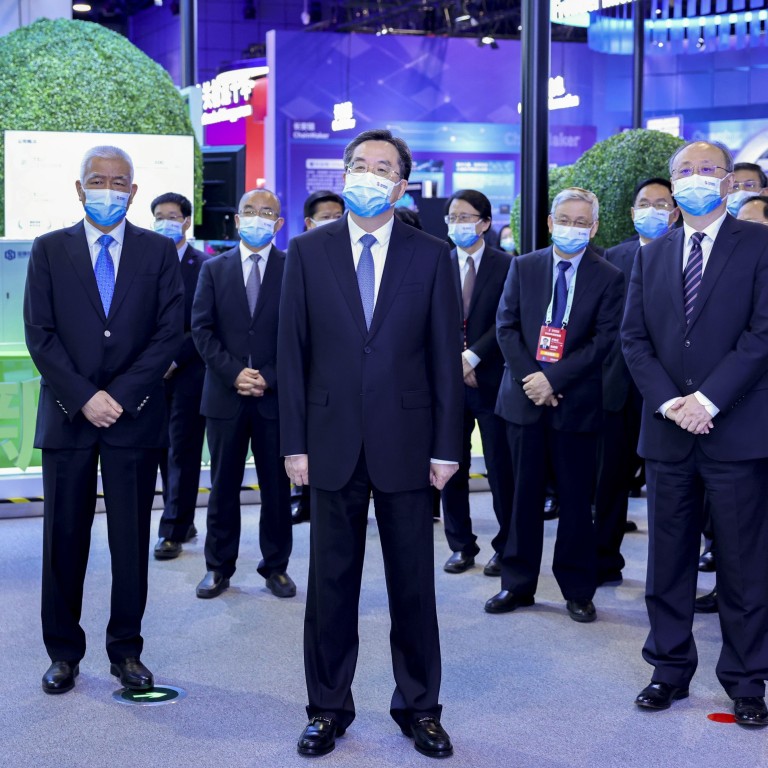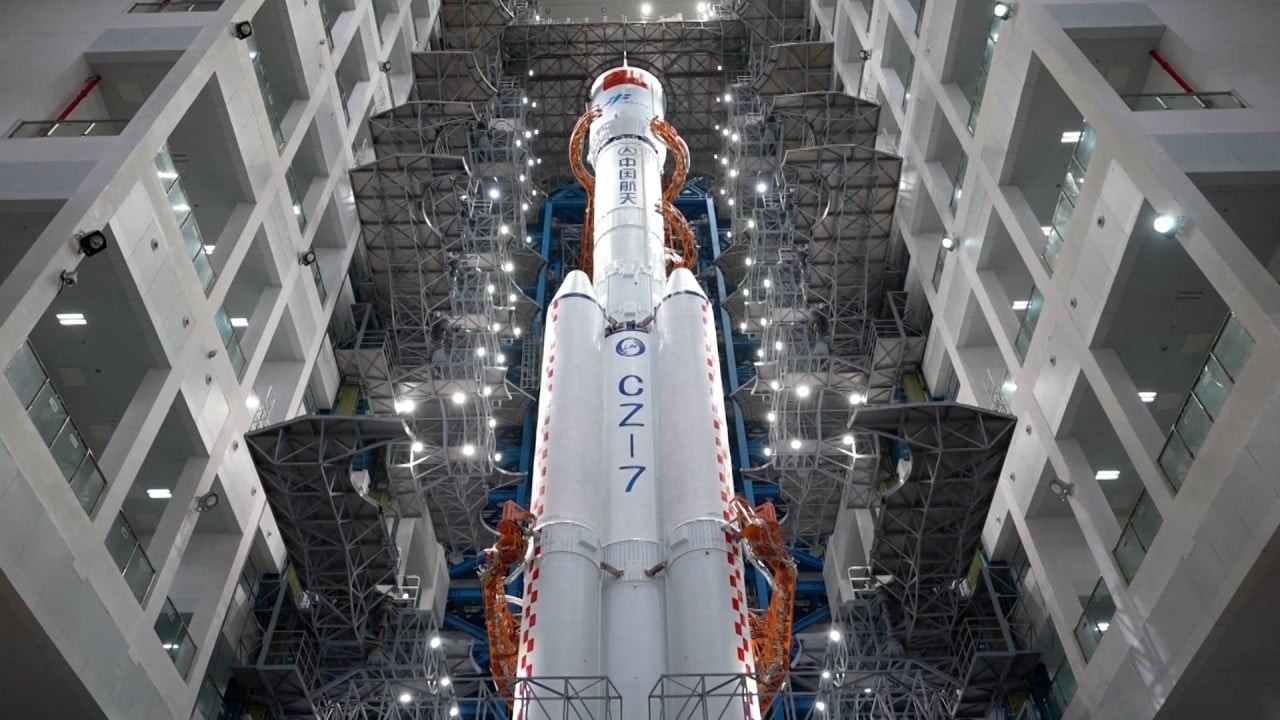
Ding Xuexiang sets fast pace for China’s hi-tech drive in another sign of new role
- The vice-premier’s comments indicate Beijing has raised its push for technology development to a new level
- Ding is the most senior official to oversee the sector, which is facing growing pressure from Washington and its allies
“[We must] perfect the system of technology innovation, optimise distribution of resources for innovation, strengthen infrastructure building for science and technology, and enhance the overall efficacy of the country’s innovation system,” he said.
Speaking at Thursday’s opening ceremony of the Zhongguancun Forum in Beijing, Ding said Beijing would support the deep integration of research and production and step up intellectual property protection to support innovation.
The remarks to the forum, which focuses on China’s hi-tech development, were among Ding’s first public comments on the issue since his promotion in March to oversee the country’s development drive.
He also attended the opening ceremony of the National Science and Technology Week in Beijing on May 20, where he inspected displays on the latest in artificial intelligence, integrated circuits, biological medicines and nuclear energy equipment.
Beijing does not officially announce the distribution of work among its vice-premiers, which is only confirmed by the events they attend and the speeches they deliver.
A former chief of staff to President Xi Jinping, Ding is now the sixth-ranking member in the powerful seven-man Politburo Standing Committee. At 59, he is also its youngest member.
Ding is the most senior Chinese official to oversee the country’s technology development, with the role traditionally given to a lower-ranking vice-premier in the State Council, China’s cabinet.
Ding Xuexiang joins party’s top decision-making body
Beijing’s previous point man on the technology drive was Liu He, who also oversaw industrial policies, finance regulation and the trade talks with the Donald Trump administration during his tenure from 2018 to March this year.
Neither Liu nor his predecessor Liu Yandong (no relation) – who held the role between 2013 to 2018 and also oversaw education, cultural affairs and public health policies – were members of the Politburo Standing Committee, the pinnacle of the Communist Party’s power structure.
Beijing is overhauling its approach to science and technology as it seeks to speed up progress in the sector in response to efforts by Washington and its allies to tighten controls on China’s access to advanced technologies.
Ding’s appointment to lead the changes coincided with the Communist Party’s plan – also announced in March – to put the sector directly under its watch with the creation of a party organ set to improve “centralised and unified leadership” of “science and technology work”.
Alfred Wu, an associate professor at the National University of Singapore, said the decision to put Ding in the driving seat of China’s technology innovation underlined Xi’s determination for the sector.
“It is different from previous practice. We can now make a conclusion that Ding Xuexiang is more important [than his predecessors in the role], and technology is now more important [than before],” Wu said.
China earmarks 2 per cent budget boost for science and technology
Before serving as Xi’s chief of staff from 2017 until his latest promotion, Ding spent two decades in various positions overseeing party affairs in Shanghai and Beijing.
But he initially trained as a materials scientist, earning his first degree in forge pressing from the Northeast China Heavy Machinery Institute in Qiqihar, the second-largest city in the northeast province of Heilongjiang.
After graduation, Ding spent 17 years at the Shanghai Research Institute of Materials, first as a researcher and eventually as its director.
Ding is also understood to have taken over as China’s top climate change official, following Han Zheng’s promotion to vice-president in the March reshuffle.
Additional reporting by Hayley Wong


